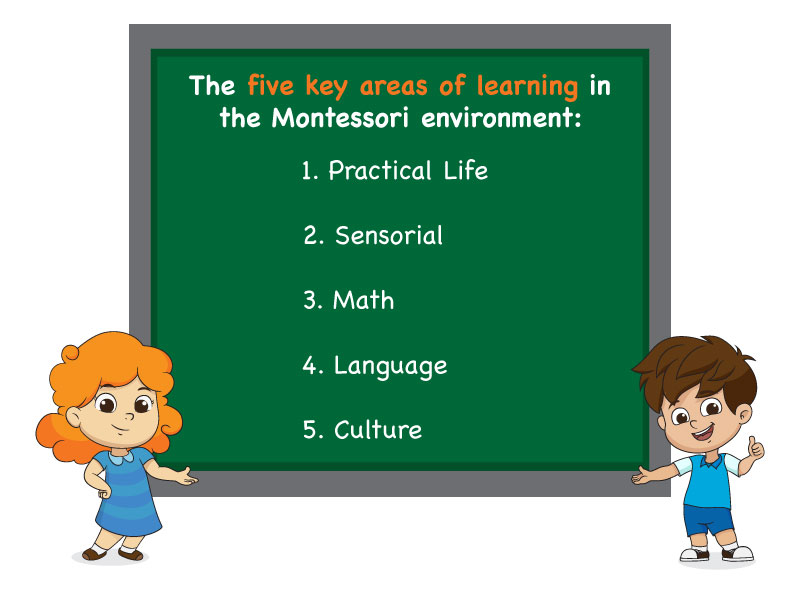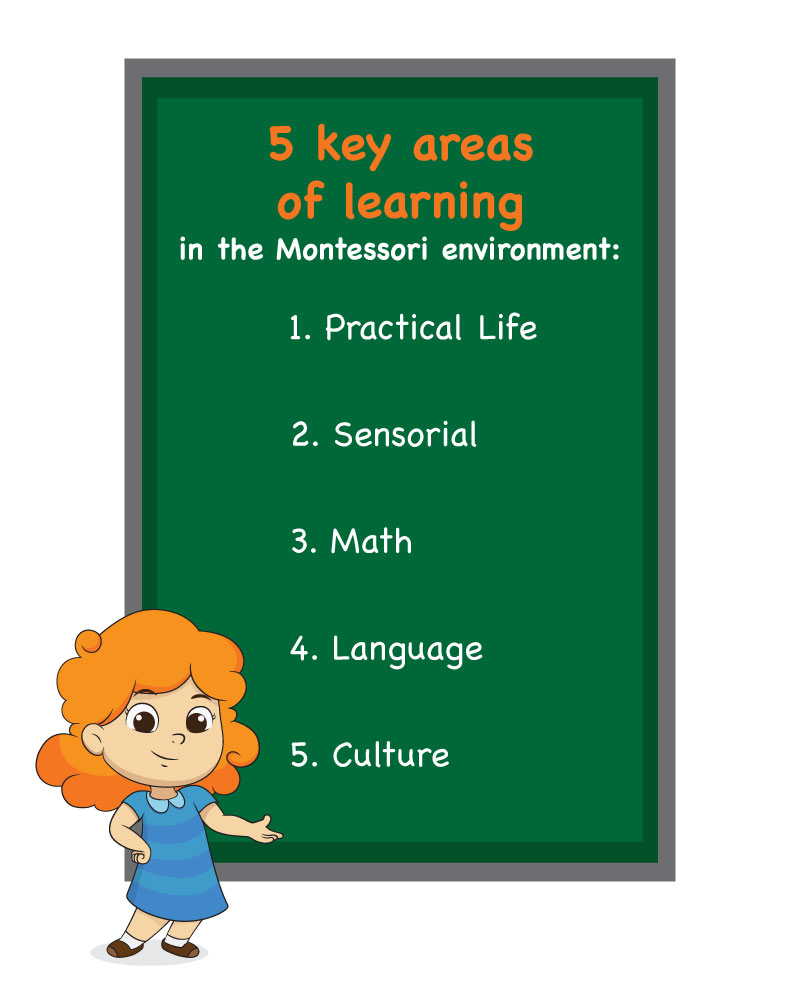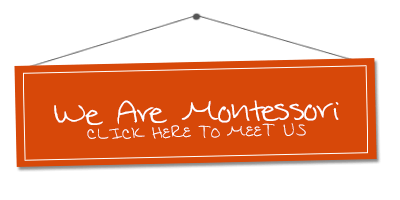Montessori Curriculum – The Five Areas of Learning
At North American Montessori Center, we approach education in a holistic way and focus on the unique developmental needs of each individual child. There are five key areas of learning in the Montessori environment. Each area helps your child learn and grow by stimulating their development through logical and creative experiences.


Practical Life
Montessori practical life exercises are designed to prepare your child for daily living by teaching them how to interact with their environment. These exercises are meant to resemble everyday activities as they use materials that are both breakable and functional. This area of learning sets the foundation for all other activities in the Montessori education — it reinforces the Montessori principles of independence, coordination, concentration, self-control, self-awareness, and confidence.
Practical life exercises include care of self and care of the environment, such as:
- Food preparation
- Dressing
- Grooming
- Hand washing
- Refining movements
- Moving quietly
- Cleaning
- Gardening
- Care of pets
- Manners
- Social interactions
- etc.
Sensorial
Montessori sensorial exercises focus on developing your child’s ability to understand and adapt to their environment. This area of learning includes the manipulation of specifically designed materials that isolate the senses. Exposure to sensory information, such as dimension, color, shape, texture, smell, and taste, helps your child classify and categorize the things around them as they explore the world.
Sensorial exercises allow your child to refine each of their senses:
- Sight (visual)
- Touch (tactile)
- Smell (olfactory)
- Taste (gustatory)
- Sound (auditory)
- Stereognostic (kinaesthetic)
Mathematics
Montessori math exercises focus on bringing order to your child’s experiences. This area of learning prepares the mind for further exploration by first introducing sequential work including an understanding of numbers through ten. Each exercise builds upon another and your child gradually moves from concrete to abstract areas such as place value, addition, subtraction, multiplication, and fractions. Activities dealing with mathematics are not implemented at a set pace, allowing your child to grow at their own natural pace.
Math exercises use hands-on materials such as:
- Number rods
- Sandpaper numbers
- Number boards
- Spindle box
- Number tiles
- Beads
- Games
- etc.
Language
Montessori language exercises focus on increasing your child’s listening skills, comprehension, and vocabulary. Scientific research backs up the Montessori belief that children are born with what they need to develop language and that they absorb language with little effort. Since your child creates an internal understanding of their environment, they must practice using these words during this early stage of life. This area of learning is designed to help your child experience different modes of language within their environment. Building a strong vocabulary sets the foundation for understanding the importance of communication and developing increased reading and writing skills.
Cultural
Montessori cultural exercises focus on allowing your child to experience their place in the world and gain an appreciation and respect for differences. These exercises explore their culture and others while teaching that all beings are fundamentally related. This area of learning helps your child discover the world around them and understand their own significance in it.
Cultural exercises explore a variety of topics, such as:
- Geography
- Zoology
- Science
- Botany
- History
- Art
- Music
Benefits of a Montessori Education
One of the factors that make The Montessori Method work so well is its focus on self-motivation. All five curriculum areas encourage children to learn at their own pace.
When following a Montessori curriculum, your child gains:
- Independence
- A love for learning through individualized, hands-on activities
- The ability to nurture their own skills and talents
- Natural self-discipline
- Enhanced social interaction
Montessori Daycare & Preschool
North American Montessori’s child care centers provide an education that enhances your child’s natural early development.
Schedule a tour today!
Tuition Information
For tuition prices please call our schools
The Centre at Conway in Chesterfield
(314) 434-3300
Casa Dia Montessori of Mehlville
(314) 892-4446
Casa Dia Montessori of Crestwood
(314) 835-9500


